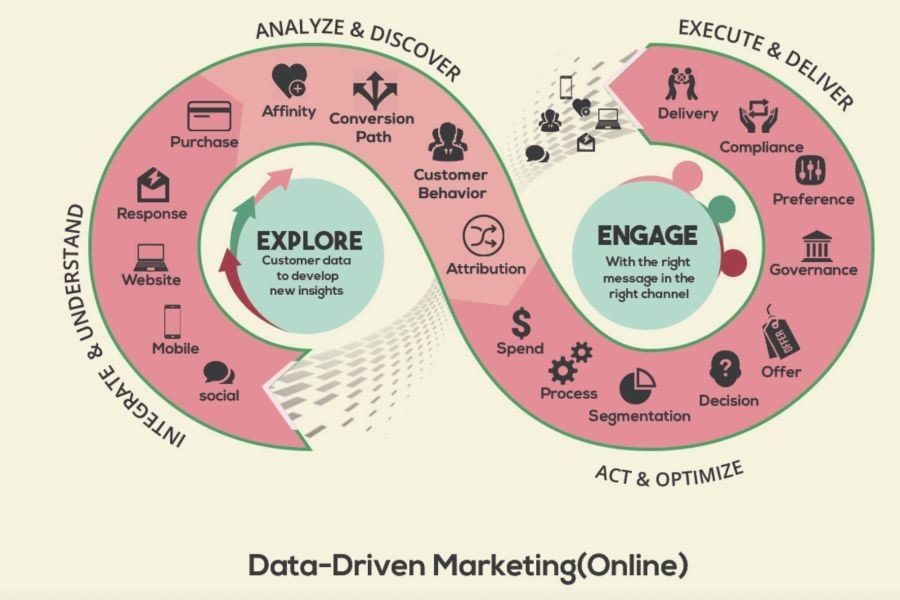In an era where data is the new oil, businesses in New Zealand are increasingly turning to data-driven strategies to enhance their marketing efforts. As digital landscapes evolve, leveraging data effectively has become crucial for staying competitive and relevant. This article delves into how Kiwi businesses can build a data-driven marketing strategy for the future, offering insights, expert analysis, and practical steps tailored to New Zealand's unique market conditions.
The Importance of Data-Driven Marketing in New Zealand
New Zealand's digital economy is rapidly expanding, with a notable increase in internet penetration and mobile device usage. According to Stats NZ, over 90% of New Zealanders have access to the internet, making digital platforms a primary focus for marketers. In this context, a data-driven approach allows businesses to tailor their marketing strategies to specific consumer behaviors and preferences, ultimately driving higher engagement and ROI.
Case Study: Xero – A New Zealand Success Story
Problem: Xero, a cloud-based accounting software company, initially struggled to penetrate the competitive global market. The challenge was to differentiate its offerings and reach the right audience effectively.
Action: Xero implemented a comprehensive data-driven marketing strategy. They utilized customer insights and analytics to refine their target audience and personalized their marketing messages. By integrating predictive analytics, they identified potential customer segments and tailored their campaigns accordingly.
Result: Within a year, Xero increased its customer acquisition rate by 30% and expanded its market share significantly. Their data-driven strategy not only enhanced their brand recognition but also positioned them as a leader in cloud accounting solutions globally.
Takeaway: Xero's success underscores the importance of using data analytics to understand customer needs and deliver personalized experiences. New Zealand businesses can emulate this approach to achieve similar growth and market expansion.
Pros and Cons of Data-Driven Marketing
✅ Pros:
- Higher ROI: Businesses leveraging data-driven strategies have reported a 20-30% increase in revenue.
- Improved Customer Insights: Gain a deeper understanding of consumer behavior and preferences.
- Personalization: Tailor marketing messages to individual customer segments for greater engagement.
- Competitive Advantage: Stay ahead of competitors by making informed marketing decisions.
❌ Cons:
- Data Privacy Concerns: Increased scrutiny over data handling practices can lead to regulatory challenges.
- Resource Intensive: Requires investment in data management tools and skilled personnel.
- Complexity: Analyzing large datasets can be complex and time-consuming.
- Risk of Data Misinterpretation: Incorrect data analysis can lead to misguided marketing strategies.
Common Myths and Mistakes in Data-Driven Marketing
Myth: "More data always leads to better decisions."
Reality: Quality of data is more important than quantity. According to a report by MBIE, businesses often struggle with data quality issues, leading to poor decision-making.
Myth: "Data-driven marketing is only for large corporations."
Reality: Small and medium-sized enterprises (SMEs) in New Zealand can also benefit significantly by using scalable data solutions tailored to their needs.
Future Trends in Data-Driven Marketing
As technology evolves, the future of data-driven marketing in New Zealand is set to be shaped by several emerging trends:
- AI and Machine Learning: These technologies will enable more accurate predictions and personalized customer experiences.
- Increased Focus on Data Privacy: With regulations like the NZ Privacy Act 2020, businesses need to prioritize transparent data practices.
- Integration of IoT Devices: The Internet of Things will provide new data sources, enhancing real-time marketing capabilities.
Conclusion
Data-driven marketing is no longer optional but essential for businesses in New Zealand aiming to thrive in a competitive digital landscape. By leveraging data analytics, companies can enhance their marketing strategies, improve customer engagement, and drive growth. As the digital economy continues to expand, businesses that embrace data-driven marketing will be best positioned for success.
What’s your next move? Are you prepared to integrate data-driven strategies into your marketing efforts? Share your thoughts and experiences below!
People Also Ask
How does data-driven marketing impact businesses in New Zealand? NZ businesses using data-driven marketing report up to 30% higher customer engagement, as shown by recent studies. This strategy enhances targeting and personalization.
What are the biggest misconceptions about data-driven marketing? One common myth is that data-driven marketing is only for large corporations. However, research indicates that SMEs can also benefit significantly from tailored data solutions.
Related Search Queries
- Data-driven marketing strategies
- Marketing analytics in New Zealand
- Future of digital marketing NZ
- AI in marketing trends
- New Zealand digital economy

































Porters Lux
9 months ago